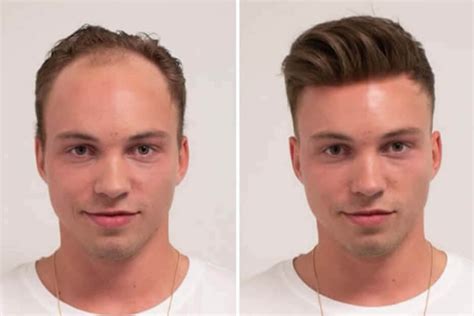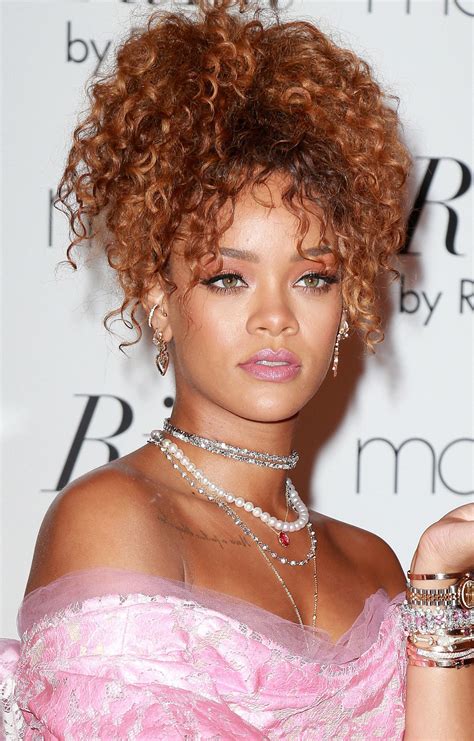Embracing Afro Curly Hair: A Journey of Empowerment and Self-Love
Afro curly hair, with its voluminous coils and vibrant texture, is a celebration of diversity and individuality. Embracing its unique beauty empowers individuals to showcase their authentic selves. However, navigating the complexities of afro curly hair care can often present challenges. This comprehensive guide delves into the intricate world of afro curly hair, providing essential knowledge and practical tips to nurture its health and enhance its natural allure.

Understanding Afro Curly Hair: A Unique Structure
Afro curly hair differs significantly from other hair types due to its elliptical cross-section. This unique shape creates a distinct curl pattern that ranges from loose waves to tight coils. The density of afro curly hair varies, but it is generally thick and coarse, with individual strands exhibiting a high degree of elasticity.
The Science Behind Afro Curly Hair
The structure of afro curly hair is influenced by genetics, climate, and cultural practices.
Genetics: Genes play a crucial role in determining the shape, texture, and growth patterns of afro curly hair. The shape of hair follicles and the production of proteins that form the hair shaft contribute to the unique characteristics of afro curly hair.
Climate: Environmental factors such as humidity and temperature can affect the hydration levels and porosity of afro curly hair. High humidity can cause hair to expand, while low humidity can lead to dryness and breakage.
Cultural Practices: Protective hairstyles, such as braids, weaves, and buns, have been used for centuries to preserve the length and health of afro curly hair. These practices can also shape the texture and growth patterns of hair over time.
Common Challenges of Afro Curly Hair
Despite its beauty, afro curly hair can present certain challenges that require specific care and attention.
- Dryness: Afro curly hair tends to be drier than other hair types due to its coarse texture and low sebum production.
- Tangling: The tight coils and curls of afro curly hair can easily become tangled, making it difficult to comb or style.
- Breakage: The elliptical shape and high elasticity of afro curly hair make it more prone to breakage, especially when dry or mistreated.
- Frizz: Frizz occurs when the hair’s cuticle is damaged, allowing moisture to escape and hair to become dry and unmanageable.
Unveiling the Joys of Afro Curly Hair
Embracing afro curly hair brings a wealth of benefits and empowers individuals to express their unique beauty.
- Volume and Body: Afro curly hair naturally achieves voluminous and bountiful styles.
- Versatility: The coils and curls of afro curly hair allow for endless styling possibilities, from sleek buns to bouncy afros.
- Low Maintenance: Once a proper care routine is established, afro curly hair can be relatively low-maintenance, requiring less frequent washings and styling.
- Cultural Significance: Afro curly hair holds significant cultural and historical importance, symbolizing strength, resilience, and individuality.
The Ultimate Care Guide for Afro Curly Hair
Nurturing afro curly hair requires a tailored approach that addresses its specific needs.
10 Commandments of Afro Curly Hair Care
- Moisturize Deeply: Afro curly hair craves moisture. Use deep conditioners, leave-in conditioners, and hair masks regularly to replenish hydration.
- Detangle Gently: To prevent breakage, use a wide-toothed comb or detangling brush on wet or damp hair.
- Seal in Moisture: After moisturizing, apply a hair sealant or oil to lock in moisture and prevent dryness.
- Minimize Heat Styling: Heat can damage afro curly hair. Air dry whenever possible and use a diffuser on a low setting when blow-drying.
- Protect from Damage: Wear a satin headscarf at night to prevent friction and breakage.
- Embrace Protective Styles: Braids, twists, and buns can protect afro curly hair from harsh elements and reduce breakage.
- Get Regular Trims: Regular trims remove split ends and promote healthy hair growth.
- Use Sulfate-Free Products: Sulfates can strip afro curly hair of its natural oils, leading to dryness and breakage.
- Avoid Over-Washing: Wash afro curly hair only as often as necessary (weekly or bi-weekly) to prevent dryness.
- Listen to Your Hair: Pay attention to how your hair responds to different products and treatments and adjust your routine accordingly.
Break Down Your Afro Curly Hair Care Routine
Cleansing:
* Co-Washing: Co-washing involves using a conditioner instead of shampoo to cleanse the hair gently without stripping it of its natural oils.
* Low-Poo: Low-poo shampoos are sulfate-free and designed to cleanse afro curly hair without causing dryness or damage.
Conditioning:
* Deep Conditioners: Deep conditioners penetrate the hair shaft to provide intense hydration. Use them as a weekly treatment or as needed.
* Leave-In Conditioners: Leave-in conditioners provide continuous moisture and protection. Apply them to damp or dry hair after washing.
Moisturizing:
* Hair Oils: Hair oils, such as coconut oil, argan oil, or jojoba oil, seal in moisture and provide additional nourishment.
* Hair Butters: Hair butters, such as shea butter or mango butter, are thicker than oils and offer deep hydration.
Styling:
* Curl Cream: Curl cream helps to define and enhance curls. Apply it to damp or dry hair.
* Curl Gel: Curl gel provides hold and definition. Apply it to damp or dry hair and scrunch to activate curls.
* Mousse: Mousse adds volume and body to afro curly hair. Apply it to damp hair and distribute evenly.
Behind the Scenes: The Science of Afro Curly Hair Care
Understanding Hair Porosity: Hair porosity refers to the ability of hair to absorb and retain moisture.
- Low Porosity: Low porosity hair has tightly closed cuticles, making it difficult for moisture to penetrate.
- Medium Porosity: Medium porosity hair has moderately open cuticles, allowing for easier moisture absorption.
- High Porosity: High porosity hair has wide-open cuticles, making it very absorbent but prone to moisture loss.
Choosing the Right Ingredients:
- Hydrating Ingredients: Look for ingredients such as glycerin, panthenol, and hyaluronic acid that provide intense hydration.
- Moisturizing Ingredients: Ingredients like shea butter, argan oil, and coconut oil help to seal in moisture and prevent dryness.
- Strengthening Ingredients: Keratin, biotin, and protein treatments can strengthen afro curly hair and reduce breakage.
7 Surprising Myths and Truths About Afro Curly Hair
-
Myth: Afro curly hair is unmanageable.
Truth: With proper care and styling techniques, afro curly hair can be beautiful and manageable. -
Myth: Afro curly hair is always dry.
Truth: While afro curly hair can tend to be dry, it is possible to moisturize it deeply and maintain its health. -
Myth: Afro curly hair should be brushed frequently.
Truth: Brushing afro curly hair too often can lead to breakage. Instead, detangle it gently with a wide-toothed comb or detangling brush on wet or damp hair. -
Myth: Afro curly hair needs to be washed daily.
Truth: Over-washing afro curly hair can strip it of its natural oils, leading to dryness and breakage. Wash it only as often as necessary (weekly or bi-weekly). -
Myth: Afro curly hair is immune to heat damage.
Truth: Afro curly hair can be damaged by heat styling just like any other hair type. Use heat sparingly and always protect it with a heat protectant spray. -
Myth: Afro curly hair is not versatile.
Truth: Afro curly hair offers a wide range of styling options, from sleek buns to bouncy afros. -
Myth: Afro curly hair is only for women.
Truth: Afro curly hair is beautiful on all genders and expressions.
A Call to Embracing Your Afro Curly Hair
Embracing afro curly hair is more than just a beauty trend; it is a journey of self-love and empowerment. By understanding its unique needs and nurturing it with care, individuals can showcase the vibrant beauty of their natural curls.
